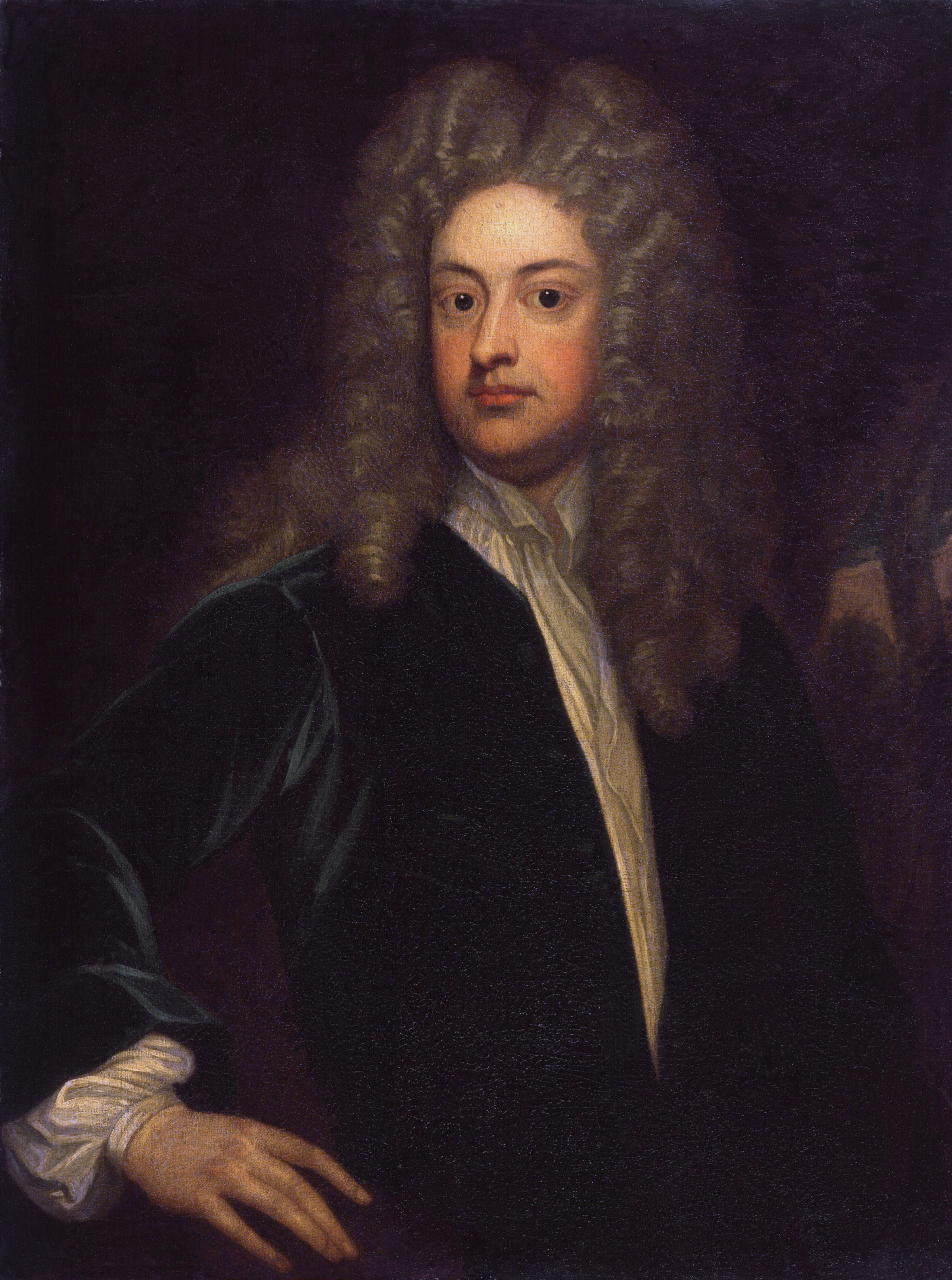“La lectura es para la mente lo que el ejercicio es para el cuerpo.”
Fuente: Villamarin Pulido, Luis Alberto. Superación personal: Tesoro de la sabiduría- Tomo II. Editorial Luis Villamarin, 2015. ISBN 9781512274851, p. 77.
Joseph Addison, escritor y político inglés. Nació en Milston, Wiltshire el 1 de mayo de 1672 y murió en Holland House, Kensington el 17 de junio de 1719.
Hijo del decano de la catedral de Lichfield, ya en 1694 publicó un libro sobre la vida de poetas ingleses y una traducción de las Geórgicas de Virgilio. En 1699 comienza a prepararse para el servicio diplomático, para lo cual viaja por toda Europa. Escribió diarios de viaje, por ejemplo sobre Italia y también sobre la campiña inglesa, y algunas obras de teatro, como Catón y El tamborilero .
Con Richard Steele funda la revista The Spectator en 1711, donde publica su obra Los placeres de la imaginación, en 1712. También escribió para la publicación The Tatler. Aunque se destacó como ensayista, participó en el Parlamento Inglés como representante whig, y entre 1717 e 1718 fue Secretario de Estado.

“La lectura es para la mente lo que el ejercicio es para el cuerpo.”
Fuente: Villamarin Pulido, Luis Alberto. Superación personal: Tesoro de la sabiduría- Tomo II. Editorial Luis Villamarin, 2015. ISBN 9781512274851, p. 77.
Fuente: Escandón, Rafael, Frases célebres para toda ocasión. Editorial Diana, 1982. ISBN 978-96-8131-285-5, p. 118.
“En verdad que el hombre no es más que una sombra, y la vida, un sueño.”
Fuente: Morales Uribe, Alberto. Historias casi ficticias. Número 44 de Colección Cultiva. Editor Cultivalibros, 2009. ISBN 9788492519767, p. 9.
“El saber, después de la virtud, es ciertamente lo que eleva a un hombre a mayor altura que otro.”
Fuente: Ortega Blake, Arturo. El gran libro de las frases célebres. Penguin Random House Grupo Editorial México, 2013 ISBN 978-60-7311-631-2.
“Mira en qué paz puede morir un cristiano.”
Últimas palabras
Original: «See in what peace a Christian can die».
Fuente: Aikin, Lucy. The Life of Joseph Addison, volumen 2. Library of English literature. Editorial Longman, Brown, Green, and Longmans, 1843. Página 236. https://books.google.es/books?id=xEoJAAAAQAAJ&pg=PA236&dq=See+in+what+peace+a+Christian+can+die.+Joseph+Addison&hl=es&sa=X&ved=0ahUKEwjzm9HkuObfAhVy1-AKHdPrA7QQ6AEIKDAA#v=onepage&q=See%20in%20what%20peace%20a%20Christian%20can%20die.%20Joseph%20Addison&f=false
Original: «But to consider this subject in its most ridiculous lights, advertisements are of great use to the vulgar. First of all as they are instruments of ambition. A man that is by no means big enough for the Gazette, may easily creep into the advertisements; by which means we often see an apothecary in the same paper of news with a plenipotentiary, or a running footman with an ambassador».
Fuente: The Tatler n.º 224, jueves, 14 de septiembre de 1710. Addison, Joseph. The Tatler. The Guardian. The Freeholder. The Whig-examiner. The lover. Dialogues upon the usefulness of ancient medals... Volumen 3 de The Works of Joseph Addison. Editorial Harper & Brothers, 1845. Página 67. https://books.google.es/books?id=mPk7AQAAMAAJ&pg=PA67&dq=Advertisements+are+of+great+use+to+the+vulgar.+First+of+all,+as+they+are+instruments+of+ambition.+A+man+that+is+by+no+means+big+enough+for+the+Gazette,+may+easily+creep+into+the+advertisements;+by+which+means+we+often+see+an+apothecary+in+the+same+paper+of+news+with+a+plenipotentiary,+or+a+running+footman+with+an+ambassador&hl=es&sa=X&ved=0ahUKEwjtqeWPpObfAhVG1eAKHYr6C1sQ6AEILzAB#v=onepage&q=Advertisements%20are%20of%20great%20use%20to%20the%20vulgar.%20First%20of%20all%2C%20as%20they%20are%20instruments%20of%20ambition.%20A%20man%20that%20is%20by%20no%20means%20big%20enough%20for%20the%20Gazette%2C%20may%20easily%20creep%20into%20the%20advertisements%3B%20by%20which%20means%20we%20often%20see%20an%20apothecary%20in%20the%20same%20paper%20of%20news%20with%20a%20plenipotentiary%2C%20or%20a%20running%20footman%20with%20an%20ambassador&f=false
Original: «There is not so variable a thing in nature as a lady's headdress: within my own memory I have known it rise and fall above thirty degrees».
Fuente: Spectator, número 98. The Works of the Right Honourable Joseph Addison, Volumen 3. Joseph Addison. Editor Richard Hurd. Editorial T. Cadell and W. Davies, 1811. Página 227. https://books.google.es/books?id=coRjAAAAMAAJ&pg=PA227&dq=There+is+not+so+variable+a+thing+in+nature+as+a+lady%27s+head-dress.+Joseph+Addison&hl=es&sa=X&ved=0ahUKEwjXur3ztObfAhUEcBQKHbSGDFcQ6AEIKDAA#v=onepage&q=There%20is%20not%20so%20variable%20a%20thing%20in%20nature%20as%20a%20lady's%20head-dress.%20Joseph%20Addison&f=false
Original: «True happiness is to no place confined, But still is found in a contented mind».
Fuente: The Works of Joseph Addison: The Spectator, no. 1-314. Volumen 1 de The Works of Joseph Addison: Complete in Three Volumes: Embracing the Whole of the "Spectator. Joseph Addison. Harper & Brothers, 1837. Página 289. https://books.google.es/books?id=1Z1KAQAAMAAJ&pg=PA289&lpg=PA289&dq=Joy+is,+above+all,+health+promotion.+Joseph+Addison&source=bl&ots=K1uJNCNc_Z&sig=EcApzQUNAdTWH-uJs1lvW7OXoJY&hl=es&sa=X&ved=2ahUKEwj69siqsebfAhVR1xoKHc30CrwQ6AEwCXoECAYQAQ#v=onepage&q=True%20happiness%20is%20to%20no%20place%20confin'd%2C%20&f=false
No. 465, Ode (23 August 1712).
The Spectator (1711–1714)
No. 117 (14 July 1711).
The Spectator (1711–1714)
“Young men soon give and soon forget affronts;
Old age is slow in both.”
Act II, scene v.
Cato, A Tragedy (1713)
“We are always doing something for Posterity, but I would fain see Posterity do something for us.”
No. 587 (20 August 1714).
The Spectator (1711–1714)
Samuel Johnson in The Rambler, no. 50 (8 September 1750); many of Johnson's remarks have been attributed to Addison
Misattributed
No. 1 (1 March 1711).
The Spectator (1711–1714)
“Great Pompey's shade complains that we are slow,
And Scipio's ghost walks unavenged amongst us!”
Act II, scene i.
Cato, A Tragedy (1713)
“Thus I live in the world rather as a spectator of mankind than as one of the species.”
No. 1 (1 March 1711).
The Spectator (1711–1714)
“Nature does nothing without purpose or uselessly.”
Act V, scene i.
Cato, A Tragedy (1713)
“For ever singing as they shine,
The hand that made us is divine.”
Ode.
Bartlett's Familiar Quotations, 10th ed. (1919)
No. 117.
The Guardian (1713)
“Talk not of love: thou never knew'st its force.”
Act III, scene ii.
Cato, A Tragedy (1713)
“Tis pride, rank pride, and haughtiness of soul:
I think the Romans call it Stoicism.”
Act I, scene iv.
Cato, A Tragedy (1713)
“What sculpture is to a block of marble, education is to the human soul.”
No. 215 (6 November 1711).
The Spectator (1711–1714)
No. 166 (10 September 1711).
The Spectator (1711–1714)
No. 249 (15 December 1711).
The Spectator (1711–1714)
Widely quoted as an Addison maxim this is actually by the American clergyman George Washington Burnap (1802-1859), published in Burnap's The Sphere and Duties of Woman : A Course of Lectures (1848), Lecture IV.
Misattributed
“Tis not in mortals to command success,
But we'll do more, Sempronius; we'll deserve it.”
Act I, scene ii.
Cato, A Tragedy (1713)
" The Life and Teachings of Thoth Hermes Trismegistus http://magdelene.net/Thoth%20Hermes%20Trismegistus.htm", in The Secret Teachings of All Ages (1928) by the Canadian occultist Manly Hall; a few quotation websites credit this to Addison.
Misattributed
“I will indulge my sorrows, and give way
To all the pangs and fury of despair.”
Act IV, scene iii.
Cato, A Tragedy (1713)
No. 255 (22 December 1711).
The Spectator (1711–1714)